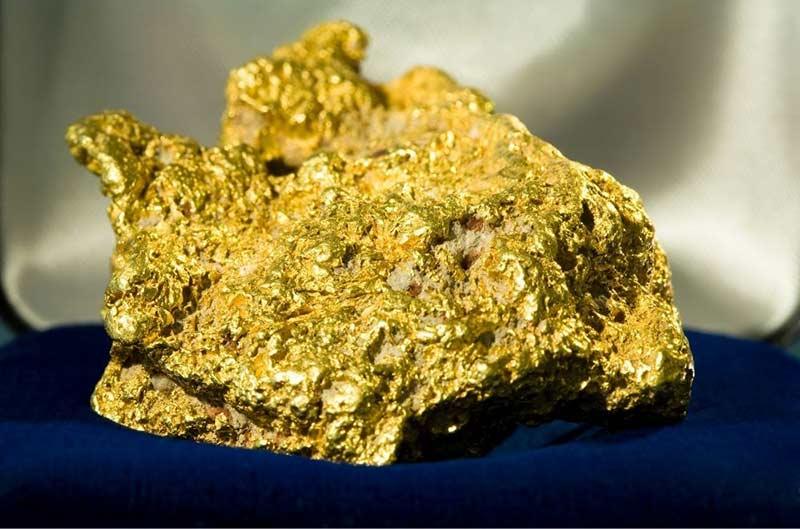Refreshing your home doesn’t have to cost a fortune-smart, eco-friendly upgrades can enhance both comfort and curb appeal. From repairing your roof or adding solar panels to introducing sustainable landscaping that attracts pollinators and conserves water, small steps can make a big environmental and financial difference. Even simple ideas, like improving pathways with solar lighting or harvesting rainwater, can transform your property while supporting greener living. Whether you’re preparing to sell or simply want to feel proud of your space, investing in eco-conscious home improvements pays off long-term. Discover more sustainable home upgrade ideas and practical green living tips on Friendly Turtle’s EcoBlog, where style meets sustainability for modern homeowners.
Share your articles with us and get published! Reach out at hello@friendlyturtle.com.
Recycled Gold - Is It More Ethical & Sustainable?

It’s no secret that gold mining causes some concerning environmental and ethical issues worldwide. What you probably don’t know is that you can choose sustainable alternatives, like recycled gold and fair-trade gold.
But keep in mind that gold is a finite resource, so there is a finite supply of gold in the world. That’s why gold recycling methods are gaining popularity. Instead of digging up new metals from the ground, we can recycle gold and protect our planet. Easy peasy!
If you’re not familiar with this eco-friendly process, keep reading to learn what recycled gold is, how it’s made, and our verdict on recycled gold vs gold!
What is Recycled Gold?
Unlike regular gold, recycled gold doesn’t come directly from a mine. As the name suggests, recycled gold comes from existing and unused items that are made from gold. Instead of being thrown away, these metals will go through gold recycling methods to become a “new” piece of gold.
That’s right, recycled gold is still real gold. So, the quality of the piece remains intact: it’s malleable, ductile, and corrosion-resistant.
How Many Times Can Gold Be Recycled?
The good news is that we can recycle gold over and over again!
Like other non-ferrous metals, gold can be melted down an infinite number of times without losing its properties. In simple words, it will never lose its value or purity. How awesome is that?
Where Does Recycled Gold Come From?
According to the World Gold Council, most recycled gold comes from unwanted jewellery. But it can also come from many other sources, particularly post-consumer products, waste, and unused items. Some of them include: coins, dental fillings, flatware, computers, smartphones, and others.
Even though gold recycling methods are eco-friendly alternatives to gold mining, recycled gold accounts for roughly 25% of the total global gold supply!
Unfortunately, that’s not enough. Don’t forget to check our verdict on recycled gold vs gold to learn why it’s important to increase this percentage.

Gold Recycling Methods: Turning Waste into Treasure
Before discovering the key differences between recycled gold vs gold, you should know how easy gold recycling can be.
If you have a few items made from gold that you no longer want, you can give them a second life (and get some extra money!) by recycling them. Here are some common gold recycling methods:
Recycling Jewellery and Coins
Besides being the most commonly recycled items, jewellery and coins are pretty easy to recycle. You can bring your unused goods to brick-and-mortar dealers or sell them to melting companies.
Before recycling gold jewellery and coins, the company will sort out the purities of gold, which are measured in carats (also known as karats). Afterwards, the metal will be melted down and refined to get pure gold.
Recycling Electronics
Some companies can recycle gold by extracting this metal from discarded electronics, such as old laptops, smartphones, and computers. This is a great example that we can recover useful materials from electronic waste!
Yet, this gold recycling method requires a few more steps. First, the company will have to dismantle the electronic product. Then, they can either melt down the metal components or use chemicals that react with the gold.
Dental Gold Recycling
Did you know that crowns, inlays, and bridgework usually contain gold? Dentists often collect these discarded materials and send them to a recycler. The recycling centre will make sure to separate the gold from other precious metals and non-metal content like tooth enamel.
Recycled Gold vs Gold: Which One is Better?
Now that you know the most common gold recycling methods, it’s time to compare recycled gold vs gold. Is gold mining as bad as it sounds? Is gold recycling an eco-friendly alternative? That’s what we’ll discover!
So, when it comes to recycled gold vs gold, which is better for the environment and people? Let’s check some key facts:

Environmental Effects of Recycled Gold vs Gold
- Recycling gold uses fewer chemicals and electricity than extracting new gold from the ground. In fact, gold mining can pollute waterways and land with mercury and cyanide. In case you didn’t know, these are toxic chemicals that affect aquatic ecosystems and the health of nearby communities!
- But that’s not all, gold mining can also pollute the air, harm wildlife, cause soil erosion, generate tons of waste, and much more.
- And if that’s not enough, some unethical mining companies still use destructive practices, like mining protected natural reserves!
- While we can recycle gold over and over again, we can’t extract new gold from the Earth indefinitely. Eventually, mining companies will run out of places to get gold from. But in the meantime, they will destroy the environment for the sake of finding new sources of gold!
Humanitarian Aspects of Recycled Gold vs Gold
- Illegal gold mining is often linked to child labour, worker exploitation, unsafe working conditions, displacement of communities, and other human rights violations.
Conclusion: Is Recycled Gold More Ethical and Sustainable?
Yes, recycled gold is usually more ethical and sustainable than regular gold.
Sometimes, it’s difficult to determine where regular gold comes from. For instance, some untrustworthy retailers may source “dirty gold” from unethical mines, where human rights violations are common. And let’s not forget that gold mining is one of the most destructive industries in the world.
Gold recycling methods are eco-friendly alternatives because they reduce the demand for new gold, which means recycled gold prevents harmful and unethical practices!
0 comments
Let customers speak for us
Blog posts
Hosting a high-stakes corporate event demands attention to every detail-and music can make or break the atmosphere. A skilled, eco-conscious DJ doesn’t just play songs; they set the tone, read the room, and enhance your company’s image while ensuring guests feel connected and energised. From using energy-efficient equipment to promoting mindful event planning, today’s sustainable entertainment choices align with modern business values. Investing in a reliable DJ means investing in your brand’s reputation, creating unforgettable experiences that reflect professionalism and purpose. Discover more about sustainable event planning and conscious business practices on Friendly Turtle’s EcoBlog, where eco-friendly innovation meets meaningful impact.
Diamond painting is a relaxing and creative hobby-but keeping your project clean and organised is key to enjoying it fully. Simple eco-friendly habits, like maintaining a dust-free workspace, reusing storage containers, and avoiding spills, can make your artwork shine brighter and last longer. Using soft brushes, breathable cloths, and tidy labelling systems not only protects your canvas but also reduces waste by preserving materials for future projects. Whether you’re crafting for mindfulness or creating sustainable art, a little care goes a long way. Discover mindful crafting tips and eco-conscious creativity on Friendly Turtle’s EcoBlog, where sustainability meets everyday hobbies for a cleaner, greener way to unwind.



